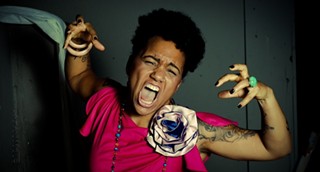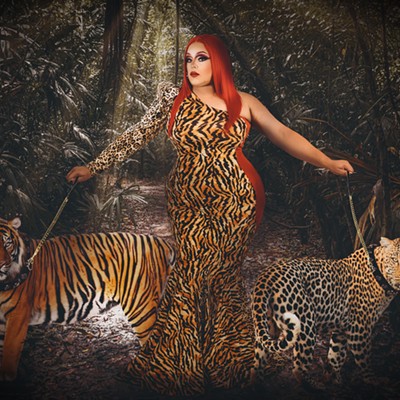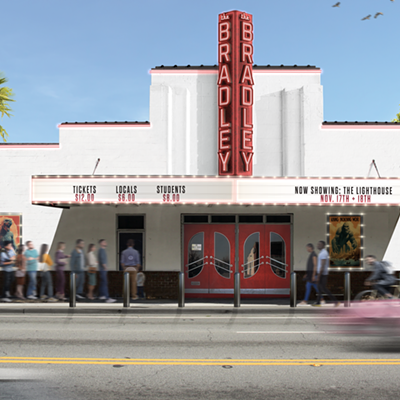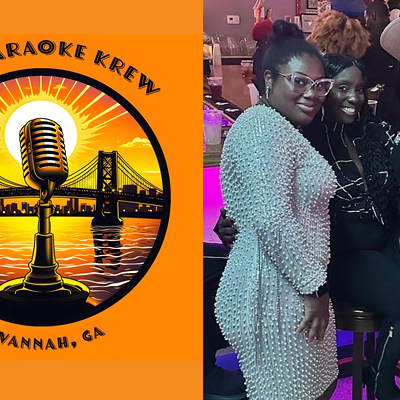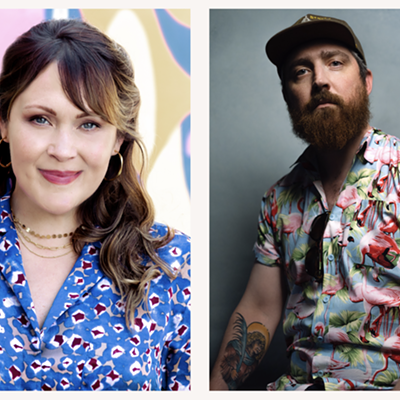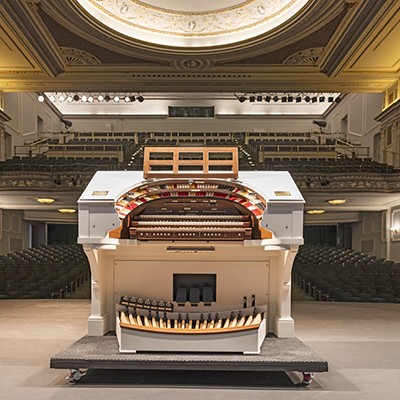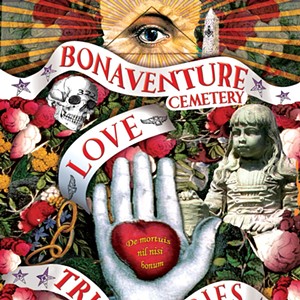Bethsheba A. Rem was born to speak her mind. After five years sitting quietly behind the collections desk at an Atlanta Bank of America, she'd had enough. A lifelong journaler, scribe and poet, she acquiesced to her conscience, and to her inner performer.
And thus began the reign of Queen Sheba.
If you've seen the series Verses & Flow on TVOne (that's Channel 53 on the Savannah Comcast system,), you've probably seen Queen Sheba. She has a commanding presence and a determined look, and she meets the camera with steely, defiant eyes.
And she talks.
She has become one of the South's most prolific and popular purveyors of spoken word, a performance art form wherein words — poetry, social commentary and written observations that begin as idle thoughts in the back of the mind — are presented live and in the presence of an audience. Its lineage can be traced back to the great tradition of African griot storytelling.
Queen Sheba is the headliner of the April 27 Spitfire Saturday event, the festive culmination of this week's Savannah Spoken Word Festival.
The festival — several days of public events revolving around spoken word and poetry — is an offshoot of the Spitfire Poetry Group, founded in 2004 by the late Clinton D. Powell and dedicated to nurturing spoken word as an art form.
What do you think the public's biggest misconception about spoken word is? That it's all angry ranting?
Queen Sheba: I think they think it's boring. A very, very small population understands what spoken word is. Some think it's the whole snapping fingers, beatnik thing, and I'm like, "No ... we've sort of surpassed that." I think a lot of times when people go to poetry readings, they're used to coffeehouses with (typically white) people who are really boring and read out of books.
But it's all good. At least they have a concept of it being live performance standup poetry. We have that understanding. Sometimes people confuse it with slam, but that's a little better than comparing it to beatnik poetry. I just think people don't know what to think until they experience it.
You talk about spoken word and its relevance to urban culture. Yet you've always been clear about making a distinction between urban poetry and commercial hip hop music, that spoken word isn't just rap without music.
Queen Sheba: Correct. We're way better! I think a good spoken word artist understands that they have a responsibility to resolution. Now, is it a resolution to something they've made up, or something that's real, or something that isn't working? In our society, I think we have the understanding that we leave people with a sense of empowerment, or a better understanding — to kick drugs and alcohol, to eat better, to exercise, to treat one another better, to treat women better, to take care of each other, to take care of your family.
And overall, hip hop doesn't necessarily have that responsibility. Hip hop has always been about braggadocio, going back to the battles in the school yard, about who's the better lyricist, who's more clever, who can flip words around. Spoken word can tell one story and say "Hey, this is what I went through, and this is how I got through it. And hopefully that'll inspire you, if you're going through the same things, and come out with a positive resolution at the end."
When did you understand the power of spoken word?
Queen Sheba: There was a poetry reading called Urban S.A.F.A.R.I. in a small art gallery. And the first time somebody clapped for something that I did not intend them to clap for, that was when I realized that telling the truth — telling your truth — had so much more power in it than you really realized.
And than as I developed as a spoken word artist, I realized that I have some gifts that some people do or don't have. I have really great stage presence; I know this to be true. I don't have a girly voice, and I know that's helpful. I'm a little rough around the edges. I've also lately transitioned into doing standup comedy, and I find the same thing to be absolutely true: If you tell your truth and your story, then it becomes relatable, and people understand it.
What about the effect this art has on young people? Some say it's cathartic.
Queen Sheba: Absolutely. The new generation of children that should be playing outside, don't. They have different outlets. And I think one of the best outlets is learning to write and then recite things that are going on in your life. It's like open therapy.
I know that's really a clichéd statement, but it really is. It's like "I'm telling you what's going on with me so that I don't react to it in a negative way. I could be punching holes in a wall, or be hooked on alcohol or narcotics, but instead I've decided to write it down and get it out that way."
I can't tell you how exhausted I am after a performance. If you really put your heart into it, you just feel drained. Because you're not regurgitating emotions, you're re-living them. It gets tough, because you want to be able to put them down and push them away. But we're not taught to tell people how we feel. Especially for young men – that would be weak, and you don't want anybody to see you vulnerable. But when it gets out, when it gets released, you can feel such a weight is lifted.

